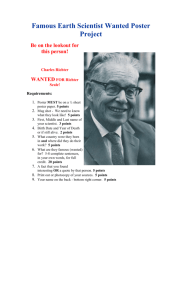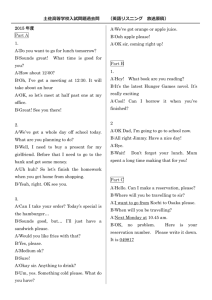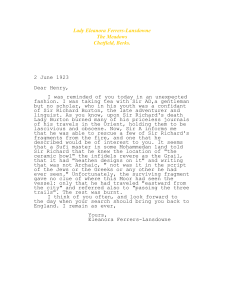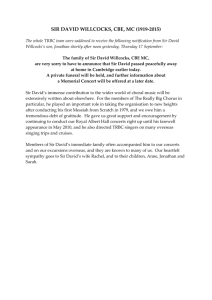Lesson Plan no
advertisement
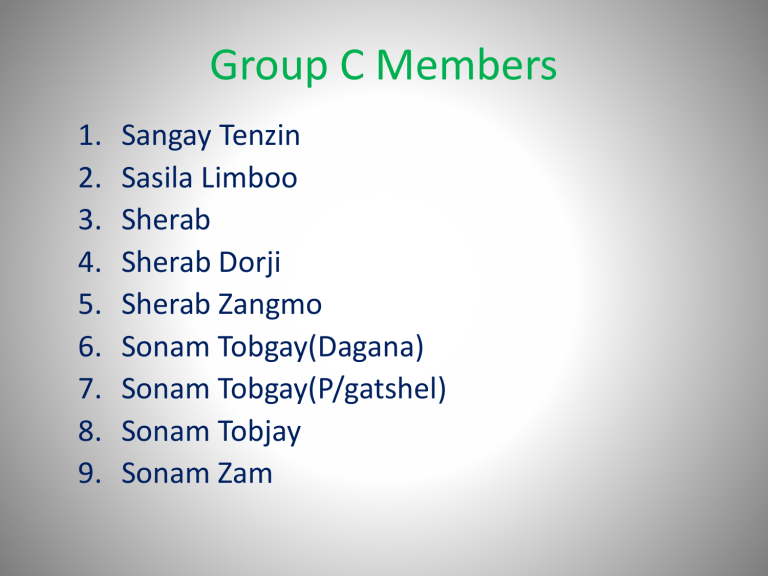
Group C Members 1. 2. 3. 4. 5. 6. 7. 8. 9. Sangay Tenzin Sasila Limboo Sherab Sherab Dorji Sherab Zangmo Sonam Tobgay(Dagana) Sonam Tobgay(P/gatshel) Sonam Tobjay Sonam Zam Lesson Plan no.:1 Name: Group C Course: B.Ed I Sec sci‘B’ Class: IX Class strength:45 Time:15mins Date:11/08/09 Period: Teaching skill under practice: Complex plan. Topic: Force. Previous knowledge of the pupils: Students have experienced and seen different kinds of force in their daily life. Teaching/learning materials: Chalkboard, textbook, chalk and chart paper. Evaluation Technique: Presentation , question and answer. Lesson Objectives Teaching Points Teaching/learnin g strategies At the end of the What is force? Discuss lesson the student Effects of force. Demonstration should be able to: Kinds of force. Explanation Define force. Examples of Presentation List down force. Question and different kinds of answering force with examples. State the effects of force. Time Teaching Activity 2 min Learners Activity INTRODUCTION “Good morning students, take your seat please.” “Good morning sir. Thank you sir” Are you all ready for the lesson? Yes sir. So alright then, today we shall start new chapter i.e chapter 3, force. Under this topic you will learn a) Definition of force b) Examples of different kinds of force c) Effects of force (Teacher writes the topic ‘force’ on the board) Student listens. Lesson development 6min Activity I Okay, before we start our lesson Response quickly. can anyone standup and lift your textbook? He had applied Now can anyone tell us how could some effort in he lift the book easily? order to lift the book. Good. So that effort is know as ‘Force’ Force is the effort Now can anyone define in your that can bring own words? change in size, shape and direction of the body. Good! any other definition? Gives the similar definition. So, a force is that physical cause Students are let which changes (or tends to change) to repeat the the dimensions or the state of rest or definition . the state of motion of body. Listen now! We come across different kinds of forces in nature. Some of these forces are: 1. Muscular force: force applied as push, pull or stretch. E.g. Stretching of rubber. 2. Mechanical force: force applied by machine. E.g. Engine of the vehicle. Student listens. 3. Frictional force: force applied when two things are brought into contact. E.g. Rubbing stone against wall. 4. Gravitational force: the pull exerted by the earth. E.g. Falling of an apple. 5. Magnetic force: force exerted by magnet. E.g. Attraction of nails by magnet. 6. Electrical force: force exerted by charge. E.g. Attraction of pieces of paper by a scale rubbed on a hair. Am I clear to you? Yes sir. 4mins Activity II Now we are going to look the effects of the force. There are three effects of force. They are: 1. It can bring change in dimensions. E.g. in a cycle pump, when the piston is lowered the air is compressed to occupy less volume. 2. Force can start or stop the motion. E.g. the push exerted by a broom to the rubbish. 3. Force can change the speed or the direction of the motion or both. E.g. when more speed is applied on the pedal of a cycle its speed increases. Did I made you clear? Yes sir. 3mins Closure So to end our lesson let us recall what we have learned today. What is force? (points to one of the student) Good! Can anyone tell us what are the different kinds of the forces? Force is that physical cause which changes or tends change the dimensions or the state of rest or the state of motion of a body. The different kinds of forces in nature are: 1. Muscular 2. Mechanical 3. Frictional 4. Gravitational 5. Magnetic 6. Electrical forces. Excellent! What are the effects of the forces? [ points to the one of the students ] The effects of the forces are: 1. Force can bring change in dimensions. 2. Force can start or stop the motion. 3. Force can change speed or the direction of the motion or both. Good! When you reach home revise once again. I Thank you sir. will ask you question tomorrow. Thank you. TASHI DELEK


